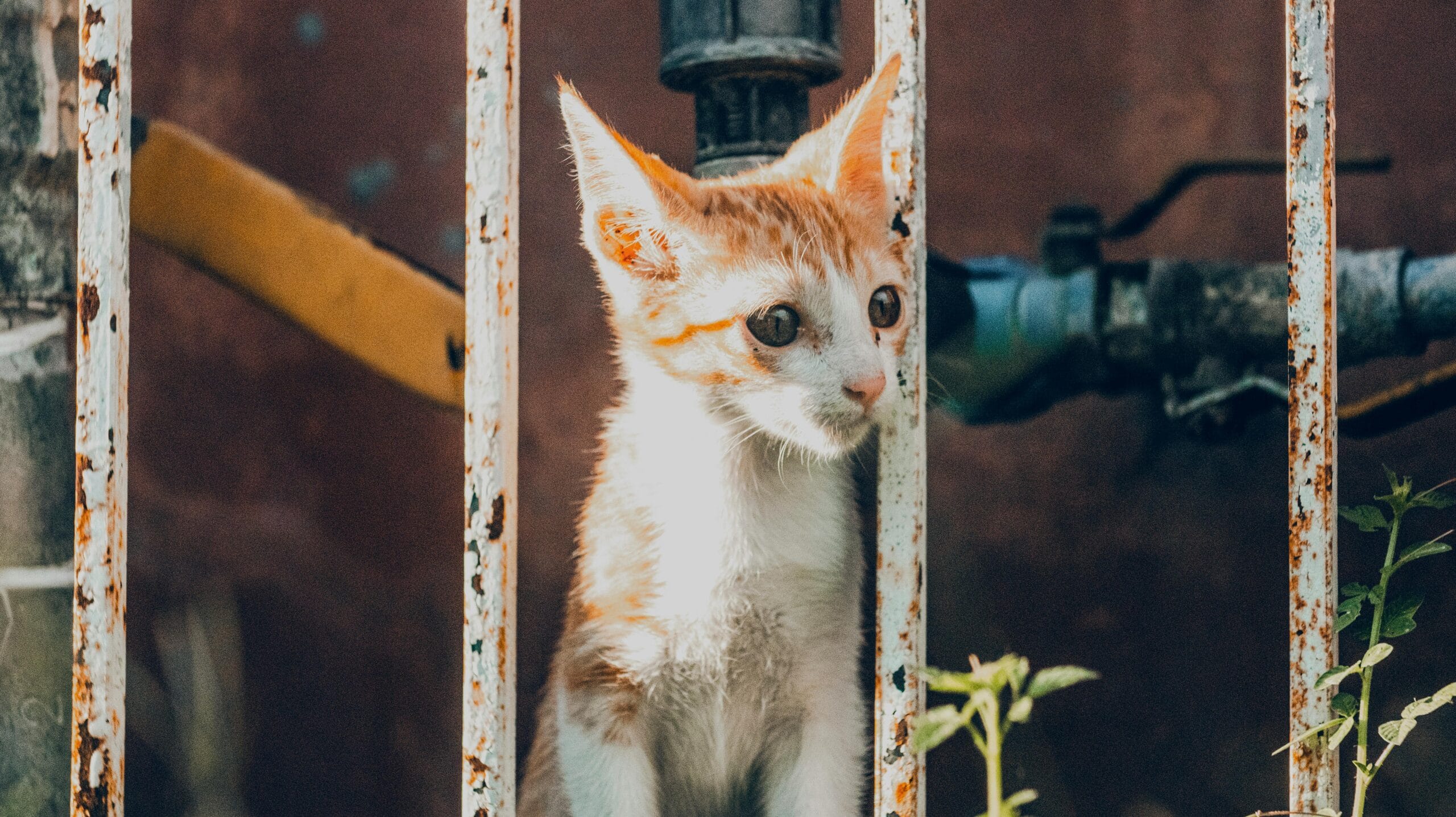When Do Kittens Get Spayed? Find out the ideal kitten spaying age & best age to spay a kitten. Learn crucial information for your pet’s health & well-being. Read now!
When Do Kittens Get Spayed? A Comprehensive Guide to Kitten Spaying Age
The question of when do kittens get spayed is a crucial one for responsible pet owners. Spaying your kitten, a female cat, is a vital step in ensuring her health and well-being, and preventing unwanted pregnancies. This comprehensive guide will delve into the optimal kitten spaying age, the benefits of early spaying, and what to expect during and after the procedure. Understanding the best age to spay a kitten will empower you to make informed decisions about your feline companion’s future.
Understanding the Best Age to Spay a Kitten
Veterinarians generally recommend spaying kittens between 4 and 6 months of age. This timeframe allows the kitten to complete crucial developmental stages while still benefiting from the preventative measures spaying offers. While some vets might spay slightly younger kittens (as young as 8 weeks under specific circumstances), waiting until closer to six months is often preferred. This ensures the kitten is sufficiently developed and can better handle the surgery and recovery period.
However, there are exceptions. For instance, a kitten showing signs of early sexual maturity might need to be spayed sooner to prevent unintended pregnancy. If you’re uncertain about the best age to spay a kitten, scheduling a consultation with your veterinarian is essential. They can assess your kitten’s individual health and development and recommend the most appropriate time for the procedure.
The Benefits of Early Spaying: Why Wait Less is Often Better
Spaying your kitten at a younger age offers significant advantages. Early spaying drastically reduces the risk of several health problems later in life. This includes a decreased chance of mammary cancer, uterine infections, and pyometra (a life-threatening uterine infection). These conditions can be incredibly costly and emotionally draining to treat, making preventative spaying a financially and emotionally sound decision.
Beyond physical health, early spaying also contributes to responsible pet ownership. Spaying prevents unwanted pregnancies, thereby reducing the already overwhelming number of homeless cats and kittens. It helps control the cat population and minimizes the strain on animal shelters.
What to Expect During and After Kitten Spaying
The spaying procedure itself is generally straightforward. It’s an outpatient surgery, meaning your kitten will likely go home the same day. Your veterinarian will provide detailed post-operative care instructions, including information about pain management and monitoring the incision site. It’s essential to follow these instructions carefully to ensure a smooth recovery for your kitten.
Your kitten may exhibit some lethargy and discomfort in the days following the procedure. This is completely normal. Providing a comfortable and quiet environment, offering plenty of water, and monitoring her appetite is crucial. If you notice any signs of excessive pain, swelling, or infection, contact your veterinarian immediately.
Factors to Consider When Choosing the Right Time
While the ideal kitten spaying age is typically between 4 and 6 months, various factors might influence the decision. The kitten’s overall health and development are primary considerations. A kitten who is underweight or experiencing other health issues may need to wait until they are stronger before undergoing surgery.
Breed can also be a factor, with some breeds maturing faster than others. Your veterinarian can assess your kitten’s breed and individual characteristics to determine the most appropriate time for spaying. Also, consider your own financial situation and the ability to provide the necessary care during the recovery period. How much does it cost to get a cat spayed? is a frequently asked question.
Addressing Common Concerns About Kitten Spaying
Many pet owners have concerns about the effects of spaying on their kitten’s behavior or development. Some worry that early spaying might lead to behavioral changes or negatively impact their cat’s personality. However, scientific evidence does not support these concerns. In fact, many vets find that spaying can actually reduce certain behavioral issues, such as spraying or aggression. Of course, this is not guaranteed in every instance, but the overall evidence is favorable toward early spaying.
Another frequent question is about the long-term health implications of spaying. The overall consensus amongst veterinary professionals is that the benefits of early spaying significantly outweigh the potential risks. The increased risk of certain cancers and infections later in life are mitigated by the preventative measures of early spaying. How much to spay a cat? is another cost-related question you might have.
Comparing Kitten Spaying to Neutering
It’s important to distinguish between spaying (for females) and neutering (for males). Neutering, or castration, involves removing the testicles. For male cats, the ideal time for neutering is often slightly earlier, sometimes as early as 8 weeks of age. The benefits are similar, including reduced aggression and a decrease in the risk of certain health issues. How much to neuter a cat? and When can kittens be fixed? are important factors to consider for the finances and scheduling of the procedure.
Planning for Your Kitten’s Spaying Appointment
Once you’ve decided on the optimal kitten spaying age for your pet, scheduling the appointment with your veterinarian is the next step. Discuss your concerns and ask any questions you may have. Getting a clear understanding of the procedure, recovery process, and potential costs will make the experience smoother and less stressful. You may want to read up on leaving your kitten alone post-surgery and consider the logistics of how long can kittens be left alone?
Beyond the Procedure: Ongoing Care and Monitoring
Post-operative care is essential for your kitten’s successful recovery. Ensure the incision site remains clean and dry. Monitor your kitten closely for any signs of complications, such as excessive bleeding, swelling, or lethargy. Provide a comfortable, quiet environment to minimize stress and promote healing.
Regular veterinary checkups are also crucial after spaying to monitor your kitten’s health and ensure that everything is progressing as expected. These checkups offer an opportunity to address any concerns and to make sure that your kitten is thriving.
Finding Reputable Veterinary Care
Choosing a reputable veterinarian is crucial for your kitten’s well-being. Look for a veterinarian with experience in spaying kittens and a positive reputation. Reading online reviews and asking for recommendations from friends and family can help you find a trustworthy professional. The American Veterinary Medical Association (AVMA) website is an excellent resource for finding accredited veterinarians in your area. You can find more information on the AVMA website: American Veterinary Medical Association.
The Importance of Responsible Pet Ownership
Spaying your kitten is a significant act of responsible pet ownership. It’s an investment in your kitten’s health and well-being, and a contribution to controlling the pet overpopulation problem. By understanding the optimal when do kittens get spayed and the benefits of early spaying, you can make informed decisions that ensure a happy, healthy life for your feline companion. The ASPCA also offers valuable resources on responsible pet ownership: American Society for the Prevention of Cruelty to Animals.
Call to Action
Have you spayed your kitten? Share your experience with the best age to spay a kitten and any advice you have for other pet owners. Let’s discuss the kitten spaying age and the process in the comments below! Share your tips and concerns regarding when do kittens get spayed.

Frequently Asked Questions: When Do Kittens Get Spayed?
- Q1: What is the best age to spay a kitten?
- The best age to spay a kitten is generally between 8 and 12 weeks old, although some veterinarians may recommend waiting until they are a bit older, depending on their size and health. This is considered the optimal kitten spaying age for minimizing risks and maximizing health benefits.
- Q2: Can I spay my kitten younger than 8 weeks?
- Spaying a kitten younger than 8 weeks is generally not recommended, as it can carry higher risks. It’s best to wait until the kitten is at least 8 weeks old and ideally closer to When Do Kittens Get Spayed at the 8-12 week mark for optimal health outcomes.
- Q3: Is it okay to wait longer than 12 weeks to spay my kitten?
- While spaying between 8-12 weeks is ideal, some veterinarians may recommend waiting until a bit later, particularly if the kitten is underweight or has underlying health concerns. However, delaying past 6 months increases the risks of uterine infections and mammary cancer. Discuss the best age to spay kitten with your vet.
- Q4: What are the risks of spaying a kitten too early?
- Spaying too early can lead to increased risks of complications like urinary incontinence and other potential health issues. This is why waiting until at least 8 weeks is recommended. Knowing when do kittens get spayed is crucial to their well-being.
- Q5: What are the benefits of spaying my kitten at the recommended age?
- Spaying a kitten at the recommended age (8-12 weeks) prevents unwanted pregnancies, reduces the risk of uterine and mammary cancers, and minimizes the risk of certain infections. It is the ideal kitten spaying age for improved health and longevity.
- Q6: Does spaying affect my kitten’s personality?
- Spaying typically doesn’t affect a kitten’s personality significantly. Most kittens remain playful and affectionate after the procedure. The focus should be on when do kittens get spayed for their overall health, not personality alteration.
- Q7: How much does spaying a kitten cost?
- The cost of spaying a kitten varies by location and veterinary clinic. It’s best to contact your vet directly for a quote. Consider the long-term cost savings of preventing unwanted litters when determining when do kittens get spayed.
- Q8: What should I expect after my kitten is spayed?
- Expect some mild discomfort and lethargy for the first day or two post-surgery. Your veterinarian will provide aftercare instructions, including monitoring the incision site. Understanding when do kittens get spayed also includes understanding post-operative care.
- Q9: My kitten is a stray; when should I get her spayed?
- If you’ve rescued a stray kitten, getting her spayed as soon as possible is crucial. Once she’s checked by a veterinarian for health issues, aim for the ideal kitten spaying age range of 8-12 weeks, if possible.
- Q10: How do I find a veterinarian who will spay my kitten?
- Many veterinary clinics offer spaying services for kittens. Contact local vets or animal shelters to inquire about availability and pricing. It’s vital to find a vet experienced in spaying kittens and consider when do kittens get spayed based on their recommendations.

When to Spay Your Kitten: A Guide for Responsible Pet Owners
Spaying your kitten is a crucial decision for her health and well-being, as well as for controlling pet overpopulation. But when is the right time? Many vets recommend spaying kittens between 4 and 6 months old, before their first heat cycle. However, some smaller breeds might be ready earlier, while larger breeds may benefit from waiting until they are a bit older and have reached a certain weight. Always consult your veterinarian; they can assess your kitten’s individual needs and determine the optimal time for the procedure. For more information on the overall cost involved, you can check out this helpful resource on how much it costs to get a cat spayed: how much does it cost to get a cat spayed.
Early spaying offers several significant health advantages. It drastically reduces the risk of mammary cancer, uterine infections, and other reproductive health issues. By preventing unwanted pregnancies, you also eliminate the stress and potential complications associated with pregnancy and childbirth in young, developing kittens. You can find more information about the ideal timing for this procedure at when can kittens be fixed.
Considering the financial aspect, the cost of spaying can vary based on your location and the veterinarian’s fees. Understanding the pricing beforehand can aid in budgeting. To get a better grasp of the costs involved, you can explore articles such as how much to spay a cat and how much to neuter a cat.
Post-operative care is essential. Your veterinarian will provide detailed instructions, but generally, keeping your kitten comfortable and quiet for a few days is crucial. Monitoring her for any signs of complications is also vital. During this recovery period, ensuring your kitten is not left alone for extended periods is important for her well-being and safety. To help you plan accordingly, you might find helpful information at how long can kittens be left alone. Remember to always follow your vet’s instructions carefully.
Spaying your kitten is a responsible act of pet ownership. By choosing to spay your kitten at the appropriate time, you are contributing to her long-term health and happiness, while simultaneously playing a part in reducing pet overpopulation. Scheduling a consultation with your veterinarian to discuss the best timing for your individual kitten is the first important step.

When Do Kittens Get Spayed, kitten spaying age, best age to spay kitten